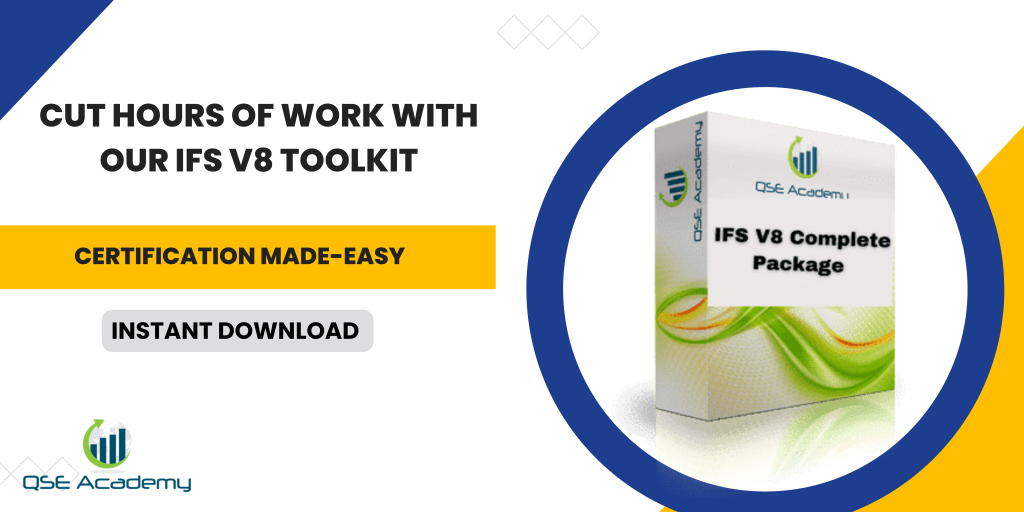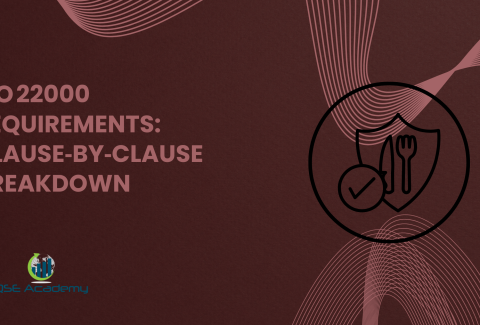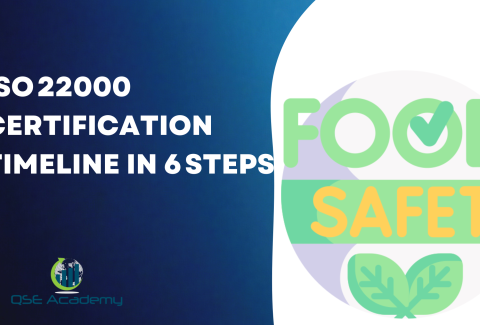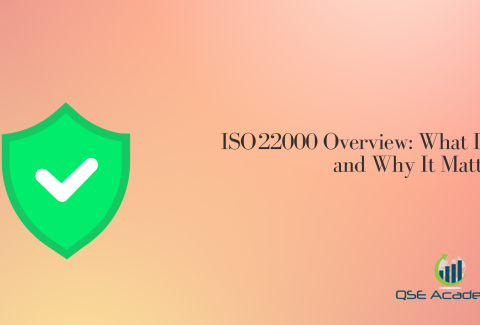IFS V8 Myths Debunked in 3 Minutes
Last Updated on December 23, 2025 by Hafsa J.
Why These Myths Exist
When I talk to manufacturers considering IFS Food V8 certification, I hear the same assumptions again and again—some true, some outdated, and some completely incorrect. And honestly, it makes sense. There’s a lot of mixed information out there. Some comes from older versions of the standard, some from rushed consultants, and some from companies who heard something second-hand and took it as fact.
If you’re reading this because you’re trying to understand what’s real and what isn’t, you’re in the right place. In the next few minutes, you’ll get clarity—not jargon, not theory—just the truth based on real audits, implementation projects, and conversations with certification bodies and retailers.
Let’s break down the biggest misconceptions.
Myth #1: “IFS Is Only Needed for Big Manufacturers.”
Reality: Size Doesn’t Matter — Market Does
A lot of smaller food manufacturers think IFS is something only global brands or large production plants need. That’s not true. The real deciding factor is who you supply—not how big your factory is.
If you’re manufacturing products for:
- European retailers
- Discount chains
- Private-label customers
- Large distributors
…IFS may become a requirement regardless of your size.
One small chocolate manufacturer I supported operated with just 22 production staff. Once a major Italian retailer approached them, the first sentence in the supplier requirements document was:
“IFS Food certification required within 12 months.”
Pro Tip: Don’t wait for a buyer to force the deadline. If Europe is part of your strategy, get ahead of it.
 Myth #2: “IFS Is Just Another Food Safety Standard Like HACCP or ISO.”
Myth #2: “IFS Is Just Another Food Safety Standard Like HACCP or ISO.”
Reality: It Goes Further — Especially for Retail Supply Chains
HACCP is foundational. ISO 22000 builds a system.
IFS evaluates whether that system works consistently in real life, especially under retail expectations.
IFS adds layers that HACCP and ISO don’t fully cover, including:
- Detailed scoring
- Knock-Out (KO) requirements
- Supplier oversight expectations
- Retail-specific controls
- Stronger operational discipline
A manufacturer once told me:
“ISO gave us structure. IFS forced us to live it every day.”
That’s the difference.
Myth #3: “IFS Audits Are Only About Documentation.”
Reality: Documentation Supports the Process — It Doesn’t Replace It
This myth is common in companies transitioning from document-heavy systems like ISO 9001 or BRCGS.
Yes, documentation matters—but IFS auditors want proof that what’s written is actually happening on the production floor.
If your SOP says operators check labels every hour but no one is doing it?
IFS will expose that quickly.
The strongest IFS environments are where:
- Documents match real behavior
- Records are used—not staged
- Teams understand the “why,” not just the “what”
Pro Tip: Start with what actually happens, then write documentation around it—not the other way around.
Myth #4: “IFS Is Harder Than BRCGS or FSSC 22000.”
Reality: Difficulty Depends on Your Current System — Not the Standard
Some companies find IFS easier than BRCGS. Others prefer FSSC. The truth? The standard isn’t the challenge—the maturity of your systems is.
If your environment already has:
- Good operational control
- Strong shop-floor discipline
- Well-defined responsibilities
- Consistent processes
…IFS may feel like a natural fit.
If your business relies on documentation and written structure more than real-time execution, then BRCGS may feel more familiar.
There’s no universal “hardest” standard. There’s only the one that aligns best with how you operate.
Myth #5: “Once You’re Certified, You’re Done.”
Reality: IFS Requires Continuous Maintenance and Improvement
Certification isn’t the finish line—it’s checkpoint number one.
IFS expects:
- Consistent performance
- Internal audits
- Supplier monitoring
- Food safety culture activities
- Corrective actions and improvements
- Proof of follow-through—not empty commitments
Companies that relax after certification often face a rough surveillance audit.
Pro Tip: Treat compliance as a cycle, not a project. Small improvements weekly beat massive changes once a year.
Bonus Myth: “IFS Certification Guarantees New Contracts.”
Reality: It Opens Doors — You Still Need to Earn the Business
IFS gives you credibility—but buyers still evaluate:
- Price
- Delivery performance
- Complaint history
- Innovation
- Service responsiveness
IFS helps you get into the conversation—but it doesn’t close the deal for you.
Think of certification as a key—not the full lock-and-close mechanism.
FAQs — Quick Clarifications
Do auditors expect perfection?
No—but they expect consistency, transparency, and corrective action when things go wrong.
Can one mistake fail an audit?
Yes—if it relates to a Knock-Out (KO) requirement or severe safety risk.
Is IFS becoming mandatory in the EU retail market?
Increasingly yes—especially for private-label and high-risk food products.
Conclusion — What Actually Matters
Once you strip away the myths, IFS Food V8 becomes less intimidating and far more practical. It’s built to improve safety, consistency, and trust—especially in European and private-label supply chains.
If you’re thinking about IFS, the next best step isn’t guessing—it’s evaluating where you currently stand.
Whether it’s ISO 9001, ISO 22000, or the cosmetics-focused ISO 22716, I’ve spent my career I’m not here to call myself an expert—I prefer “enthusiast” because I truly love what I do. When I’m not writing about standards, you’ll probably find me playing Piano 🎹, connecting with people, or diving into my next big project💫. I’m an engineer specialized in the food and agricultural industry
make ISO standards less intimidating and more approachable for everyone.
turning complex jargon into clear, actionable steps that businesses can actually use.
There’s something incredibly rewarding about helping people navigate food safety and quality management systems
in a way that feels simple, practical, and even enjoyable.
I have a Master’s in QHSE management and over 12 years of experience as a Quality Manager
I’ve helped more than 15 companies implement ISO 9001, ISO 22000, ISO 22716, GMP, and other standards
My clients include food producers, cosmetics manufacturers, laboratories, and service companies
I believe quality systems should be simple, useful, and efficient.










